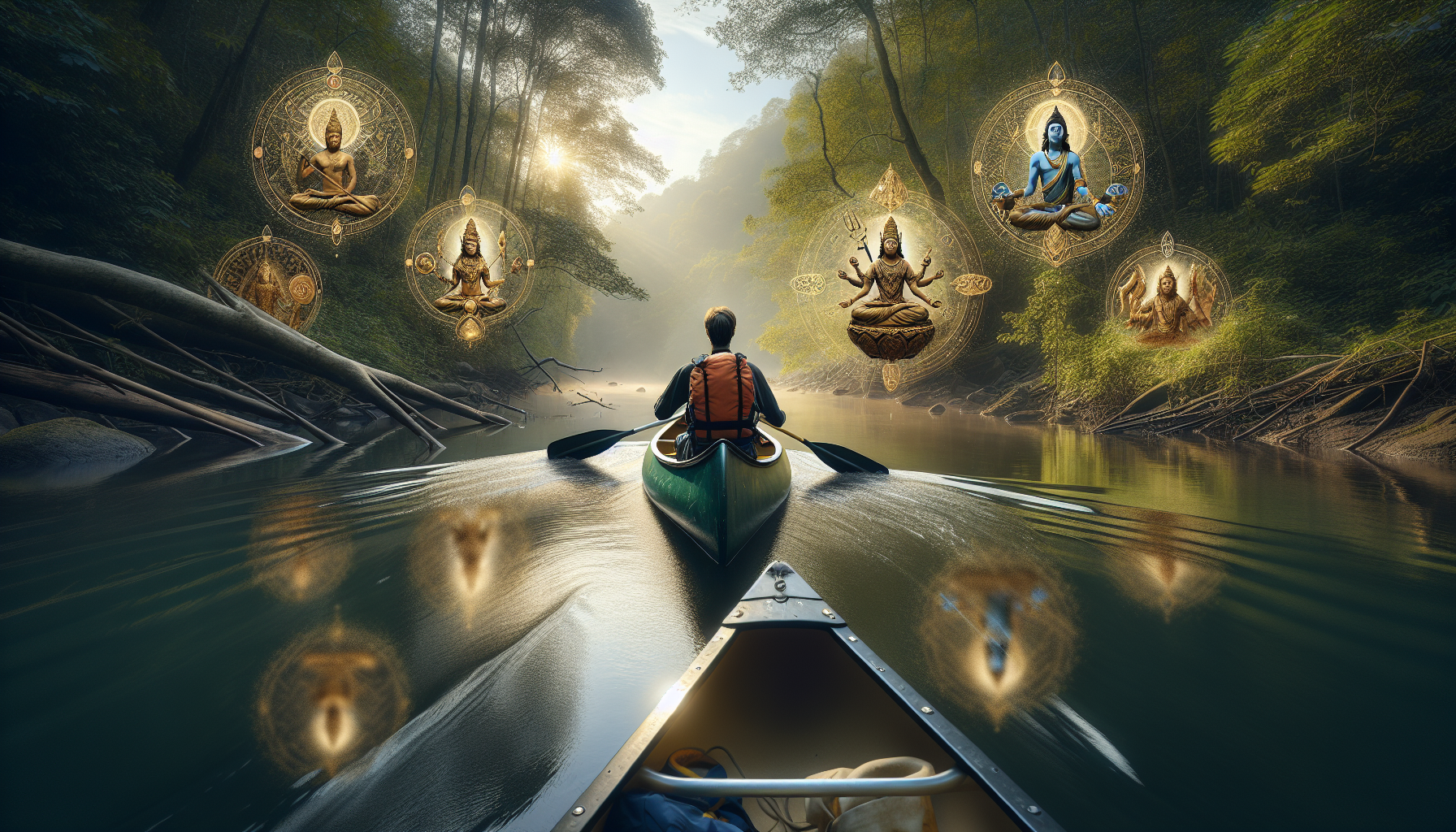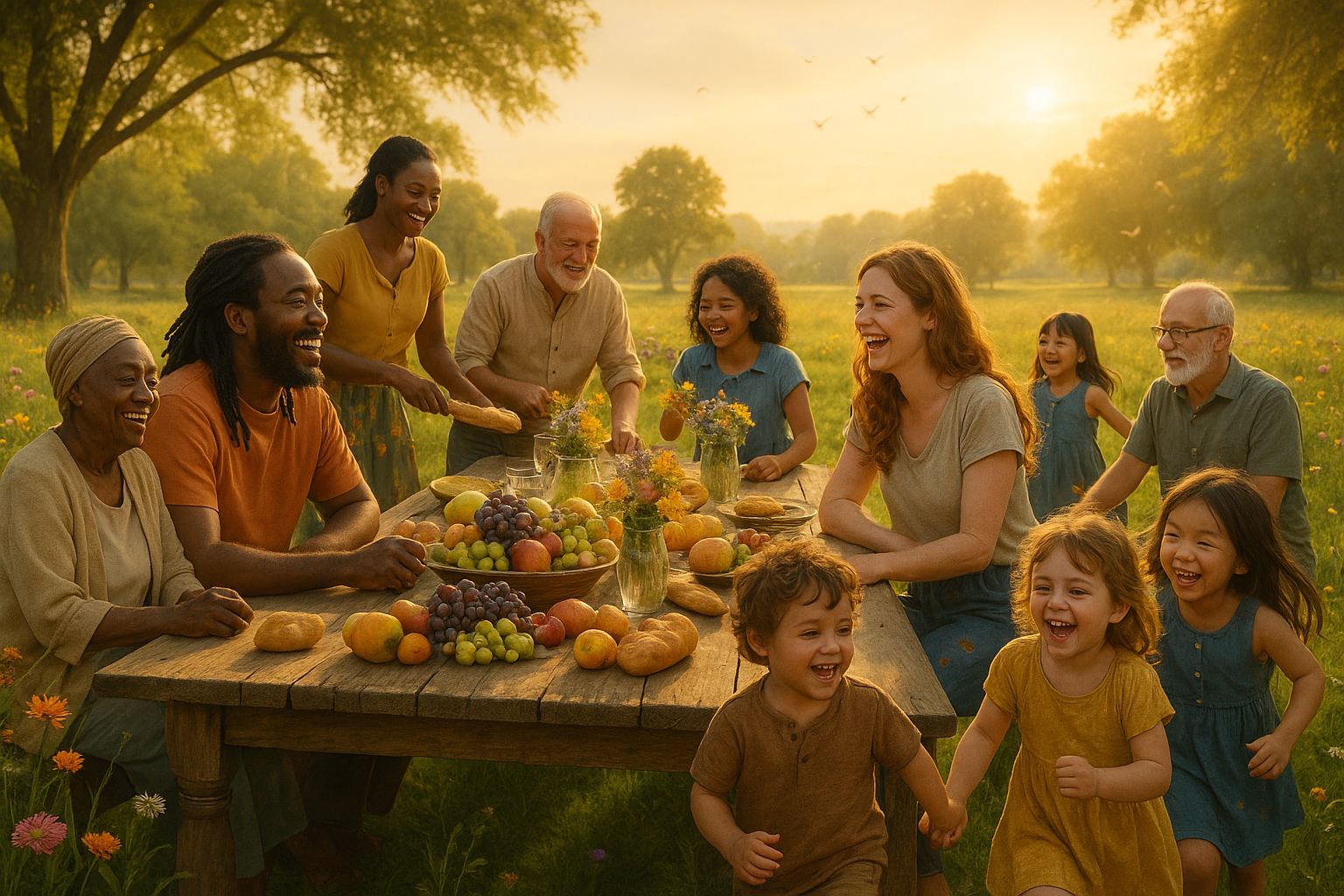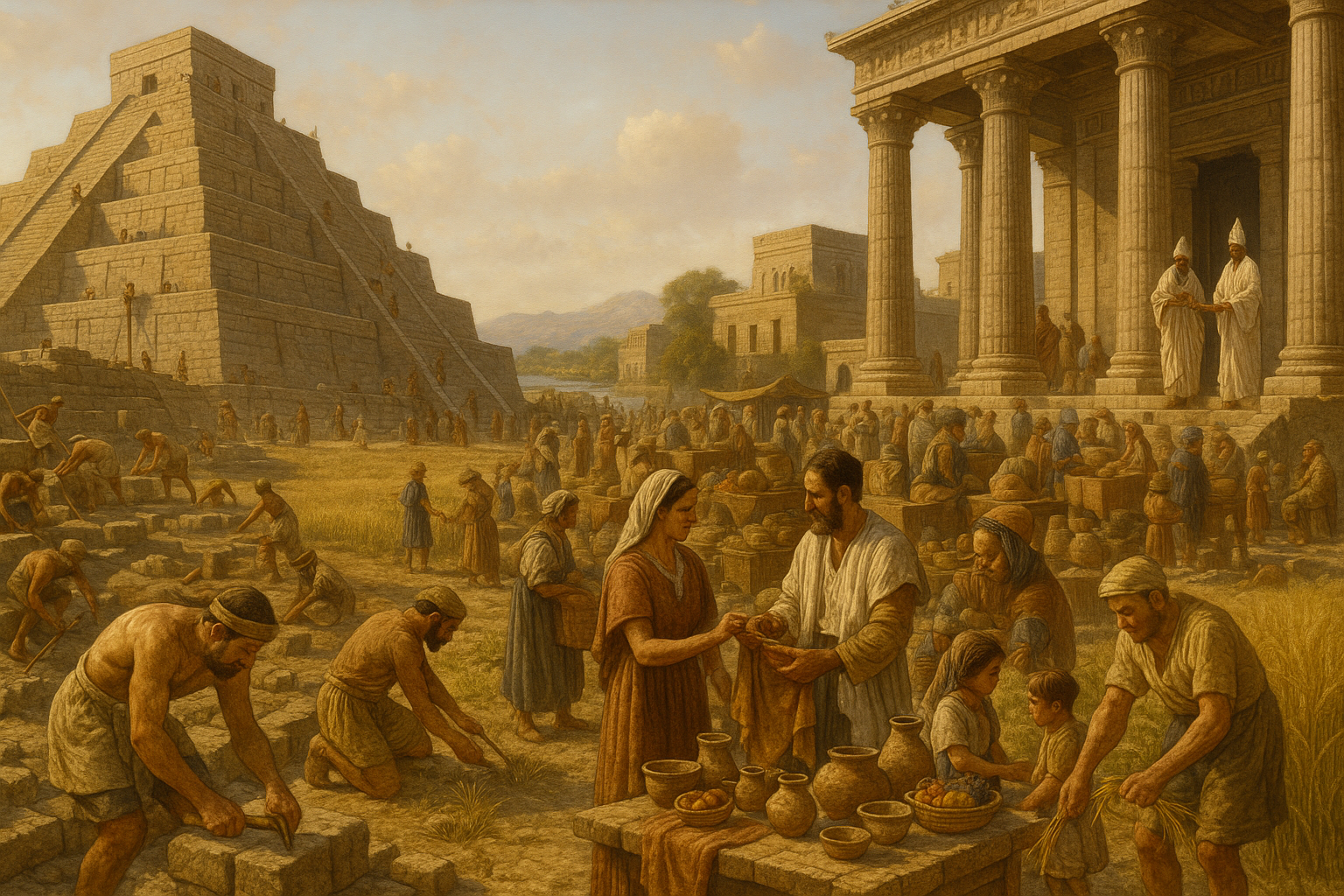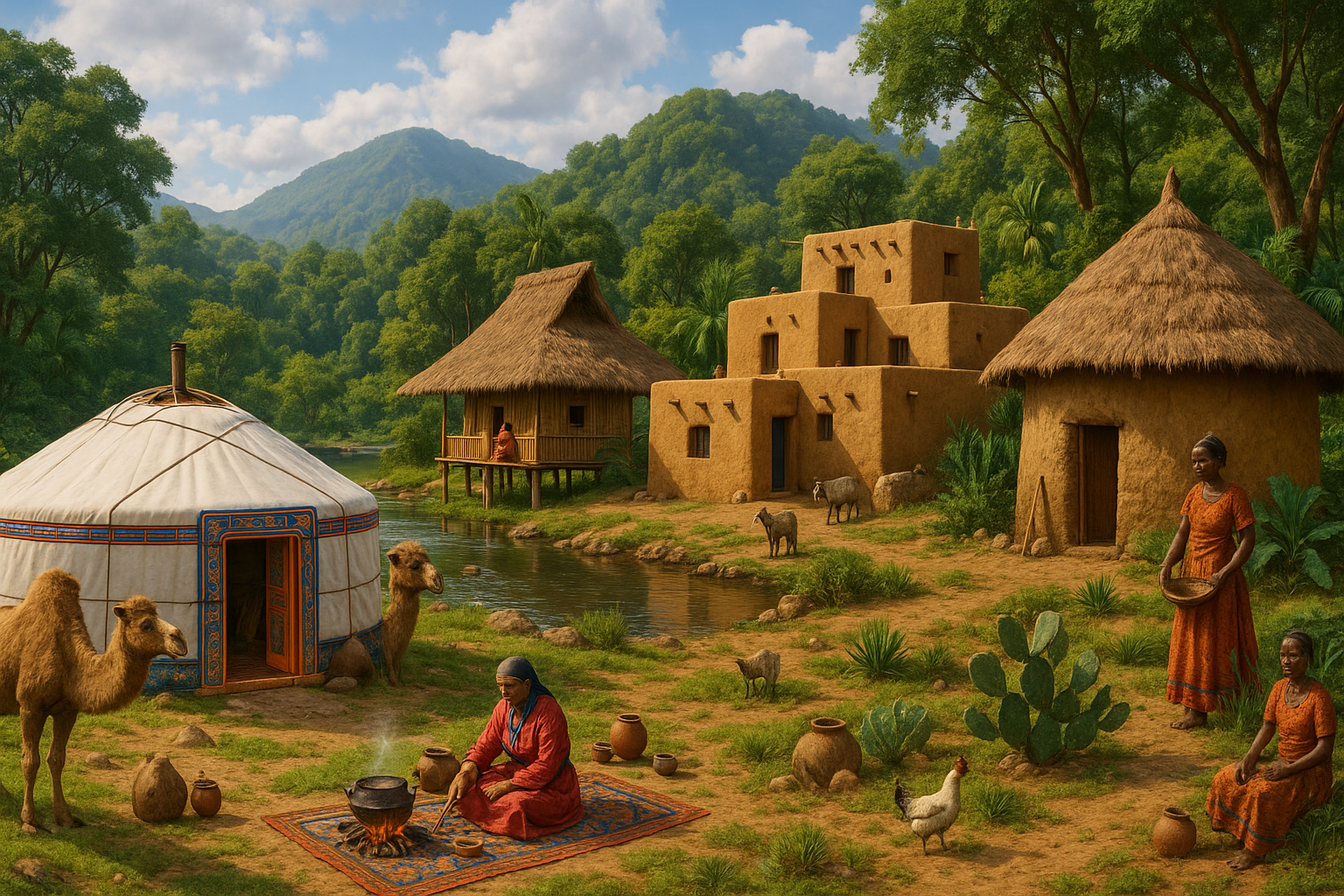In the vast expanse of human history, water has always been both a giver of life and a formidable adversary. From the earliest days of civilization, humans have relied on the mighty waterways for sustenance, exploration, and connection. Yet, the waters hold their own mysteries and perils. As we glide across serene lakes or navigate the treacherous currents of mighty rivers, the canoe stands as our humble vessel—a testament to human ingenuity and resilience. But what if there were more than just skill and craftsmanship ensuring our safe passage? What if divine forces, ancient and revered, could be invoked to safeguard our journeys? 🌊
Welcome to the world of “Divine Guardians: Harnessing the Power of Specific Deities for Ultimate Canoe Protection.” In this exploration, we delve into the fascinating interplay between spirituality and seafaring, uncovering how cultures across the globe have called upon the divine to protect their travels on water. These divine entities, revered and worshipped, are not mere relics of the past. They are vibrant threads in the tapestry of human belief, offering protection, guidance, and peace of mind to those who seek their favor. From the powerful deities of the Norse pantheon to the nurturing spirits of Polynesian mythology, the guardians of the waterways have been as diverse as the people who worship them.
Throughout this article, we will embark on a journey through time and tradition, examining the rich tapestry of myths and legends that surround these divine protectors. We will explore the stories and attributes of key deities, such as the Norse god Njord, the Polynesian goddess Hina, and the Greek god Poseidon, each offering unique blessings and protections for those who take to the waters. Their stories are not just tales of old, but living traditions that continue to influence and inspire modern-day adventurers and spiritual seekers alike. By understanding the roles and rituals associated with these divine figures, we can appreciate the profound respect and reverence our ancestors held for the natural world and its mysterious forces.
As we navigate these ancient waters, we will also explore how contemporary canoe enthusiasts and spiritual practitioners are rediscovering and reinterpreting these traditions. In a world where the pace of life is ever-increasing, many are turning to the wisdom of the past to find balance and protection in their journeys. Whether you are an avid paddler seeking an extra layer of spiritual security, a history enthusiast eager to learn about ancient practices, or a spiritual seeker drawn to the mysteries of the divine, this article promises to offer insights and inspirations for all. So, prepare to embark on a voyage like no other, as we uncover the divine guardians that have watched over humanity’s aquatic adventures for millennia. 🚣♂️
## Understanding the Role of Deities in Canoe Protection
In many cultures around the world, deities have played significant roles in various aspects of life, including the protection of travelers and their vessels. The concept of divine guardianship is especially prominent in societies where canoes are crucial for transportation, trade, and survival. The belief that specific deities can offer protection to canoes underscores the spiritual connection between humans and the divine, where the spiritual world intersects with the physical. This belief system is not merely about appeasing these divine entities, but also about harnessing their power to ensure safe passage through potentially dangerous waters.
For those venturing into open waters, the notion of divine protection can provide not only physical safety but also psychological comfort. Knowing that a deity is watching over can instill confidence and courage in the face of natural adversities like storms or hostile waters. Moreover, such beliefs often come with rituals and practices that are passed down through generations, forming a rich tapestry of cultural heritage. These practices can include offerings, prayers, and ceremonies designed to invoke the blessings and protection of the chosen deity. By understanding and respecting these traditions, individuals can gain deeper insights into the cultures that hold these beliefs and practices.
### The Cultural Significance of Canoe Deities
Canoe deities are often deeply embedded in the cultural fabric of societies that rely on waterways as a primary mode of transportation. They symbolize the integration of spiritual beliefs with everyday life and highlight the importance of nature and the divine in ensuring survival and prosperity. These deities may vary in their manifestations and attributes, often reflecting the unique environmental and cultural contexts of their respective societies. For instance, a deity revered in Polynesia may differ significantly in characteristics from one honored in the Amazon.
These deities often embody natural elements such as the sea, wind, and weather, which are crucial to safe navigation. By personifying these elements, cultures create a framework through which they can relate to and interact with their environment. This relationship is not purely utilitarian but deeply spiritual, acknowledging the interconnectedness of all life. It also emphasizes the importance of living in harmony with nature, respecting its power, and recognizing its divine essence.
The rituals associated with these deities often serve as a communal activity, strengthening social bonds and cultural identity. By participating in these rituals, individuals reinforce their shared beliefs and values, contributing to a sense of unity and belonging. Such practices also act as a way to transmit cultural knowledge, ensuring that future generations understand and uphold their heritage. Through these rituals, the past, present, and future are woven together, creating a continuous narrative of cultural continuity.
## Specific Deities Associated with Canoe Protection
### The Role of Kanaloa in Hawaiian Culture
In Hawaiian culture, Kanaloa is a prominent deity associated with the sea, navigation, and protection. Kanaloa is often depicted as a god of the ocean, working in tandem with Kane, another major deity associated with creation and life. Together, they are seen as complementary forces, balancing each other’s influence over the natural world. Kanaloa’s domain includes all things maritime, from the creatures of the sea to the winds that guide the canoes.
Hawaiians traditionally invoked Kanaloa for safe passage and favorable conditions when embarking on voyages. Offerings and prayers were made to seek his blessing, ensuring that travelers would return home safely. The significance of Kanaloa in Hawaiian culture reflects the critical role of the ocean in their daily lives, as it was not only a means of sustenance but also a pathway to exploration and cultural exchange.
The rituals dedicated to Kanaloa often involved chants and hula, which are integral parts of Hawaiian spiritual expression. These rituals serve as a reminder of the islanders’ deep connection to their environment and the divine forces that govern it. By honoring Kanaloa, Hawaiians acknowledge the sea’s power and express gratitude for its bounties, ensuring continued harmony between humans and nature.
### Tangaroa: The Maori Guardian of the Seas
In Maori culture, Tangaroa is revered as the god of the sea and fish, playing a vital role in navigation and canoe protection. As one of the children of Ranginui (the sky father) and Papatuanuku (the earth mother), Tangaroa is part of a larger pantheon of deities that govern various aspects of the natural world. His influence extends beyond the waters, as he is also associated with fertility and abundance, reflecting the interconnectedness of land and sea in Maori cosmology.
Tangaroa’s protection is sought by Maori navigators through rituals and offerings, particularly before setting out on important journeys. These practices often involve the use of karakia, or prayers, that call upon Tangaroa’s guidance and protection. The reverence for Tangaroa highlights the Maori’s profound respect for the sea and their understanding of its unpredictable nature.
Maori art and storytelling often depict Tangaroa and his exploits, serving as both a cultural repository and a means of imparting traditional knowledge. By engaging with these stories, individuals can learn about the values and principles that underpin Maori society, including the importance of stewardship and sustainability. This cultural knowledge is essential for preserving the delicate balance between humans and the environment, ensuring that future generations can continue to thrive.
## Rituals and Practices for Invoking Divine Protection
### Traditional Offerings and Ceremonies
The rituals and ceremonies associated with invoking divine protection for canoes are as diverse as the cultures that practice them. These rituals often involve offerings of food, flowers, or other items that are believed to please the deities and secure their favor. The type of offering and the manner in which it is presented can vary widely, reflecting the unique cultural contexts and beliefs of each society.
In many Polynesian cultures, for instance, offerings to sea deities are accompanied by chants and dances that express gratitude and reverence. These performances are not merely for entertainment but serve as a vital link between the physical and spiritual realms. By participating in these rituals, individuals affirm their commitment to maintaining harmony with the divine and the natural world.
Similarly, in the Amazon, indigenous tribes may offer items such as tobacco, feathers, or crafted goods to the spirits that inhabit the rivers. These offerings are part of elaborate ceremonies that seek to ensure safe passage and successful ventures. The rituals often involve community participation, fostering a sense of shared responsibility and mutual support. By honoring the spirits in this way, the tribes acknowledge the interconnectedness of all life and their place within it.
| Culture | Deity | Attributes | Rituals |
|---|---|---|---|
| Hawaiian | Kanaloa | Sea, navigation, protection | Chants, hula, offerings |
| Maori | Tangaroa | Sea, fish, fertility | Karakia, offerings |
| Amazonian | River Spirits | Water, protection, abundance | Tobacco offerings, community ceremonies |
### The Modern Relevance of Traditional Practices
While these traditional practices have ancient origins, they continue to hold relevance in modern times. Many communities see the value in preserving these rituals as a way of maintaining cultural identity and continuity. In a rapidly changing world, such practices provide a sense of stability and connection to the past, helping individuals navigate the complexities of modern life.
Moreover, these rituals can offer valuable insights into sustainable living and environmental stewardship. By emphasizing the importance of harmony with nature, they encourage a more mindful approach to resource use and conservation. This perspective is increasingly relevant as global environmental challenges demand new ways of thinking and acting.
For those outside these cultural traditions, there is much to learn from the wisdom and practices of societies that have thrived in harmony with their environment for generations. By respecting and understanding these beliefs, individuals can gain a deeper appreciation for the diversity of human experience and the shared challenges we face in ensuring a sustainable future.
## Embracing the Power of Deities in Canoe Protection
### Connecting with the Spiritual Realm
The act of harnessing the power of specific deities for canoe protection is ultimately about fostering a deeper connection with the spiritual realm. For believers, this connection is not just about seeking protection but about cultivating a relationship with the divine that is rooted in respect, gratitude, and humility. This relationship is reciprocal, requiring individuals to uphold their end of the spiritual bargain by living in accordance with the values and principles espoused by their deities.
In many cultures, this connection is facilitated through regular practices of prayer, meditation, and reflection. These practices serve to align individuals with the divine will, ensuring that they remain in harmony with the spiritual forces that guide their lives. By engaging in these practices, believers can experience a sense of peace and assurance, knowing that they are supported by forces greater than themselves.
### Applying Ancient Wisdom to Modern Challenges
The principles and practices associated with canoe protection deities offer valuable lessons for addressing contemporary challenges. At their core, these traditions emphasize the importance of balance, respect, and cooperation—values that are essential for navigating the complexities of modern life. Whether dealing with environmental issues, social conflicts, or personal struggles, these principles provide a framework for finding solutions that are both effective and sustainable.
By applying this ancient wisdom to current problems, individuals and communities can work towards creating a more harmonious and equitable world. This involves not only drawing on traditional knowledge but also integrating it with new insights and innovations. In doing so, we can build a future that honors the past while embracing the possibilities of the present.
For those interested in exploring these ideas further, a wealth of resources is available, including books, documentaries, and online courses. Engaging with these materials can provide a deeper understanding of the cultural and spiritual contexts that shape these practices, offering inspiration and guidance for those seeking to incorporate them into their own lives.
### Engaging with the Global Community
In today’s interconnected world, there is an increasing opportunity to engage with diverse cultural traditions and spiritual practices. By participating in cross-cultural exchanges and dialogues, individuals can broaden their perspectives and gain new insights into the human experience. This engagement fosters mutual respect and understanding, building bridges between different communities and promoting a more inclusive and compassionate world.
For those interested in learning more about the role of deities in canoe protection, there are numerous opportunities to connect with practitioners and experts from around the globe. Whether through cultural festivals, workshops, or online forums, these interactions offer a chance to deepen one’s knowledge and appreciation of these rich traditions.
As we explore these spiritual dimensions, it is important to approach with sensitivity and respect, recognizing the value and significance of these practices for the communities that uphold them. By honoring these traditions, we can contribute to a more diverse and vibrant world, where the wisdom of the past continues to inspire and guide us towards a brighter future.

Conclusion
In conclusion, the exploration of divine guardians and their role in providing ultimate canoe protection has been both enlightening and inspiring. This journey through various cultural beliefs and practices has shed light on how ancient wisdom and spiritual reverence can significantly influence modern practices in safeguarding our cherished canoes. Throughout the article, we have delved into the historical context, the specific deities revered across different cultures, and the rituals and offerings that are believed to invoke their protection.
Initially, we explored the rich history of canoeing and its vital role in the livelihood and culture of many communities around the world. Canoes are not merely vessels; they are symbols of heritage, adventure, and connection to the natural world. This understanding laid the foundation for appreciating why divine protection is sought and valued.
We then examined the pantheon of deities associated with water, travel, and protection, each with their unique attributes and stories. From Polynesia’s Kanaloa, revered as the god of the sea, to the Norse god Njord, and the African deity Mami Wata, the diversity of these divine figures highlights a universal recognition of the importance of safeguarding those who travel by water. By understanding the attributes and stories associated with each deity, individuals can tailor their spiritual practices to align with their cultural heritage and personal beliefs.
The rituals and offerings that accompany these beliefs were another focal point of our discussion. These practices not only seek the favor of divine guardians but also foster a deeper connection between individuals and the natural world. Whether it is through a simple prayer, a ceremonial offering, or the observance of sacred traditions, these actions reinforce a sense of respect and gratitude towards the forces that govern the waters.
It is important to recognize the enduring relevance of these traditions in today’s world. As we continue to navigate the challenges of modern life, the lessons from these ancient practices can offer us guidance and reassurance. By embracing these spiritual practices, we can cultivate a sense of peace and protection, knowing that we are supported by forces greater than ourselves.
As we conclude, let us reflect on the significance of integrating these spiritual practices into our canoeing experiences. Doing so not only enriches our personal journeys but also honors the traditions and wisdom passed down through generations. It is a reminder of our shared humanity and the universal quest for safety, adventure, and connection.
We encourage you, dear reader, to explore and embrace these practices in your own life. Whether you are an avid canoeist or someone seeking spiritual growth, the divine guardians stand ready to guide and protect you. Share this knowledge with your friends and family, and consider how you can incorporate these traditions into your own canoeing adventures. 🌊
For those interested in learning more, we recommend exploring the following resources:
– [Polynesian Mythology and Deities](https://www.polynesiandiving.com/mythology)
– [Norse Mythology: Gods of the Sea](https://www.norsegods.com/sea)
– [African Water Spirits and Deities](https://www.africanmythology.com/water-spirits)
These sources offer a deeper insight into the fascinating world of divine guardians and their enduring influence across cultures. By sharing your thoughts and experiences in the comments, you contribute to a rich tapestry of knowledge that continues to evolve and inspire.
In closing, may the divine guardians guide your path and protect your journeys, both on the water and in life. 🌟
Toni Santos is a visual storyteller and experimental artisan whose work explores the strange frontiers where science meets art. Fascinated by the forgotten, the obscure, and the wonderfully absurd, Toni brings bizarre scientific experiments to life through provocative visual narratives and handcrafted creations that blur the line between curiosity and discovery.
His journey is rooted in a passion for the eccentric side of science — from electric shocks on cadavers to botany in hostile environments, from Victorian medical oddities to animal behavior gone rogue. Each project Toni undertakes sheds light on real (and sometimes questionable) scientific ventures that push the boundaries of human understanding.
With a background in visual design and hands-on craftsmanship, Toni blends artistic precision with conceptual boldness. His creations aren’t just decorative — they provoke, disturb, and invite the viewer to reconsider what counts as science, progress, or even sanity. Often inspired by true experiments — like galvanic resurrection, psychological endurance tests, or 19th-century pseudo-science rituals — Toni’s work reanimates these bizarre chapters of history with aesthetic intrigue and critical reflection.
As the creative force behind Vizovex, Toni invites you to explore a world where the strange becomes symbolic, the grotesque becomes beautiful, and every experiment tells a story worth unearthing.
His work pays tribute to:
The brilliant madness of forgotten experiments
The symbolic power of science at the edge of reason
The beauty in questioning what we think we know
Whether you’re a curious mind, a lover of scientific history, or simply drawn to the uncanny, Toni welcomes you to explore a realm where aesthetics and absurdity collide — one experiment, one mystery, one creation at a time.





